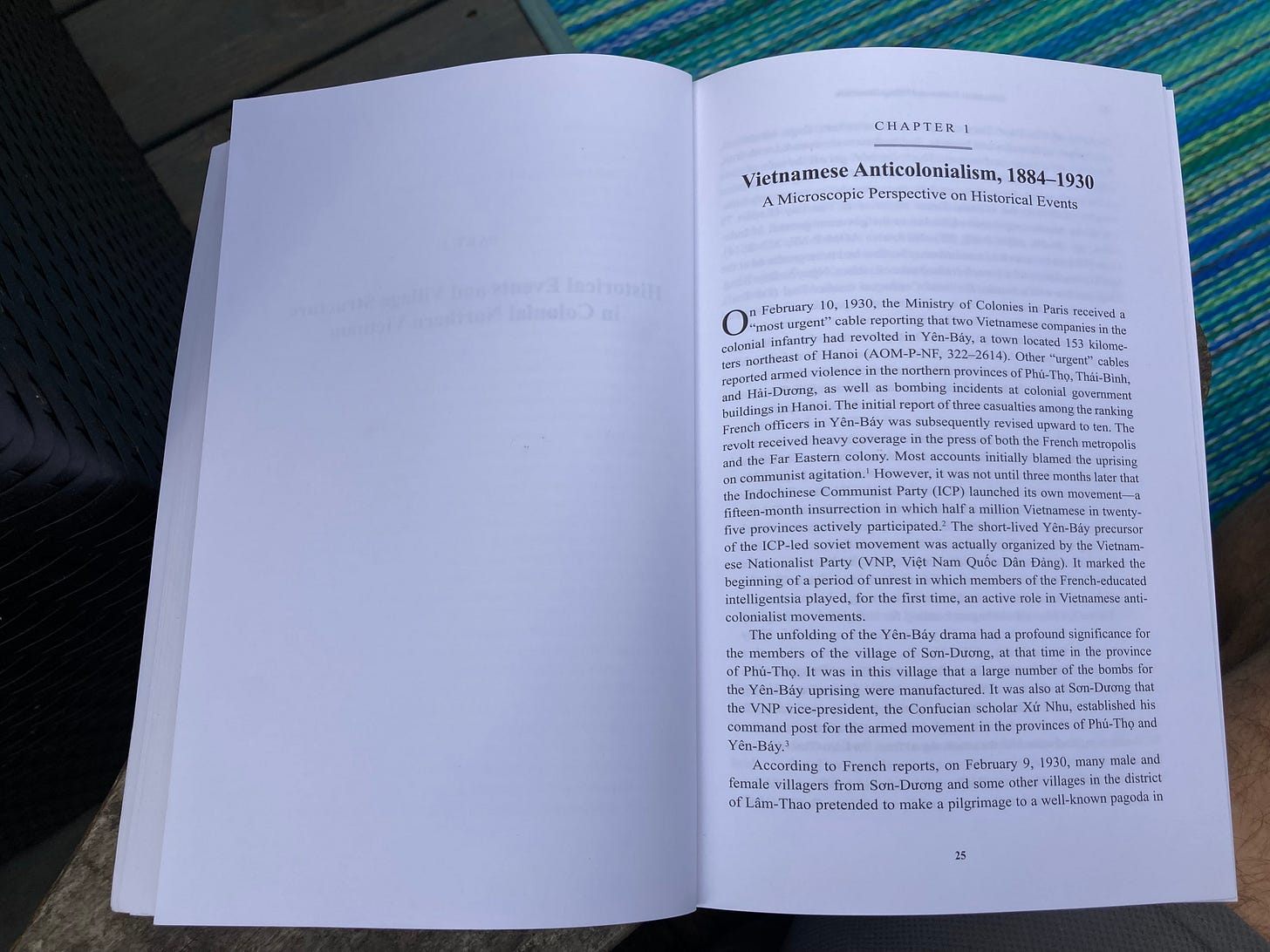Tradition, Revolution, and Market Economy in a North Vietnamese Village, 1925-2006 (iii)
from anthropologist Hy Van Luong and Vietnamese studies
“More and more about less and less,” the elderly woman remarked. Well on her way to becoming an ancestor she no longer could work the 2 hundred year-old kitchen garden. I pulled the last of the tubers out of the fine rich soil as she quizzed me on my life’s work since we last talked.
Vietnamese studies, I had told her. “More and more about less and less,” she commented. Her sharp mind and words had made Edith an icon of her hardscrabble state, known for its rocks. The nation’s journalists had knocked on her door to speak of her reporting in the family weekly on the news from their township.
She would send the helmet-hairs in their suits directly from the doorstep around back to work in the garden, one patch of Vermont free of rocks, every last one picked out by another generation of labor as each year’s frost heaved up fractured granite. “More and more about less and less,”
I thought, pulling out leaves and vines. Her hip had worn out and she didn’t hold with fixing up old people. My liver had just kicked back in after going flooey, it seems to me now from the strain of doing more and more about less and less.
I was recovering as the great lady was heading out. It was a privilege to know her, a champion of the local where all national news comes from, and a link to her own ancestors. The lady who had bequeathed the garden to her was temperance,
you know, the comical figures who also were the abolitionists and the suffragettes, and the anti-colonialists. Examine the page above to see what alcohol was in Viet Nam, a way to extract cash money from the poorest of the poor
to capitalize the projects that would immiserate them all. No kitchen garden for the Tonkinese, just labor on someone else’s fields for food and shelter and a wage enough to buy the alcohol as a tax.
More and more about less and less. Hy Van Luong has packed all of Vietnamese studies into one book on one town north of Ha Noi. He published the first edition in 1992 just after I had started speaking Vietnamese.
Then he opened the book up and packed in second thoughts and updates to 2006, years after I had left the country for good. The first chapter, shown below, takes you up to 1930, when my parents were born in the worldwide depression,
The older generation in Hy’s book are the contemporaries of my great-grandparents. The young adults are those of my grandparents and senior uncles. The timeline Hy follows from French conquest to bitter years of oppression is that of David Marr,
the Marine like Daniel Ellsberg dissident to the war he had fought, as many years younger than my father, another Marine, as I was from my older brother. Reading David’s scholarship led me to learn the language in 1991.
Maybe David’s story is not the way Viet Nam really happened, how when the Nguyen dynasty fell into the hands of France the Vietnamese struggled and failed and struggled again. It is after all history. Bunk.
One thing after another. Henry Ford who said those 2 things was the contemporary of the actors in Hy’s story. That tale is however what you have to know, more than how to speak Vietnamese, to speak with Vietnamese, even those who don’t write Vietnamese studies, about Viet Nam.
Hy improves David’s history with anthropology. He adds insight from investigations of family ties and town governance and witness from his friends. You must read this first chapter to then, with Hy, over the rest of the book
engage with what happened in this town, what locals did, to see how the national story was the local story, sometimes, how the local story was the national one, sometimes, to learn more and more about less and less.
So we all may dig our garden. And, you know what? Drinking alcohol? Just stop. It makes anyone stupid. We all pay the tax. What it’s for.
This was the third Viet Nam letter of 5 so far on Tradition, Revolution, and Market Economy in a North Vietnamese Village, 1925-2006 by Hy Van Luong. The first had posted on April 6, 2022 and the second on May 7, 2022.
The fourth went out on July 25, 2022 and the fifth on January 29, 2023.
Viet Nam letters respects the property of others under paragraph 107 of United States Code Title 17. If we asked for permission it wouldn’t be criticism. We explain our fair use at length in the letter of September 12, 2023.
The colophon, directly above, of these Viet Nam letters shows the janitor speaking with poet David A. Willson on a Veterans Day.








Wonderful. Now go weed the peas. And if you think there aren’t anymore rocks in there, you’re crazy.